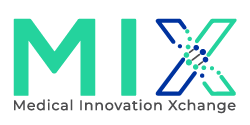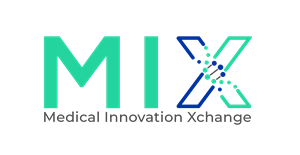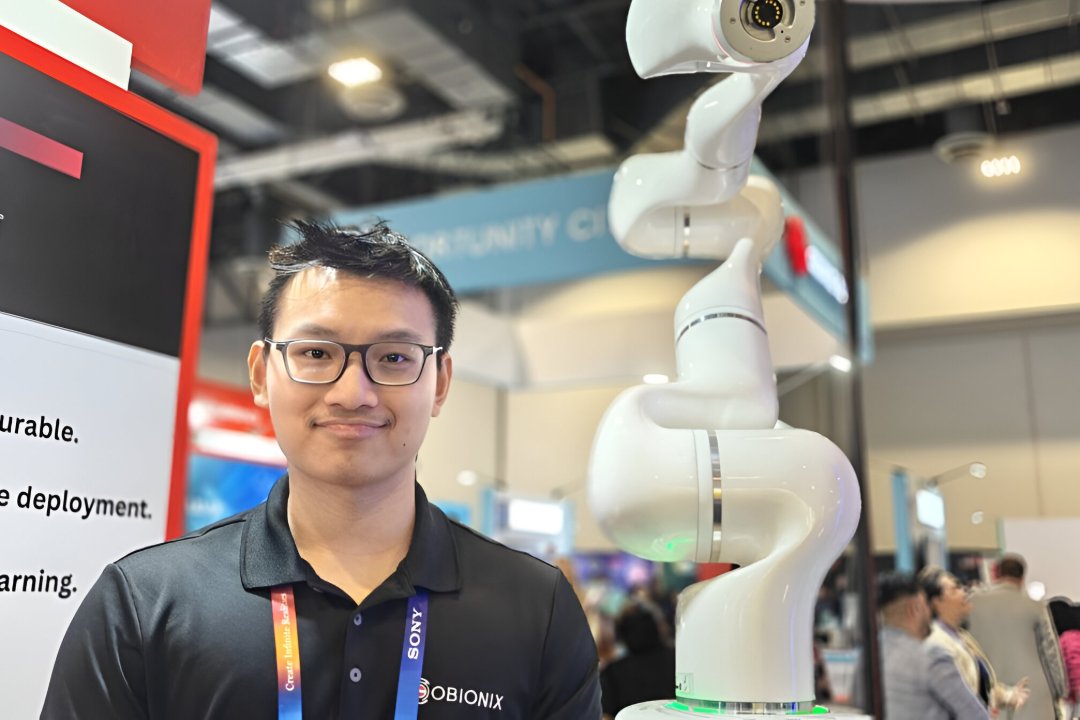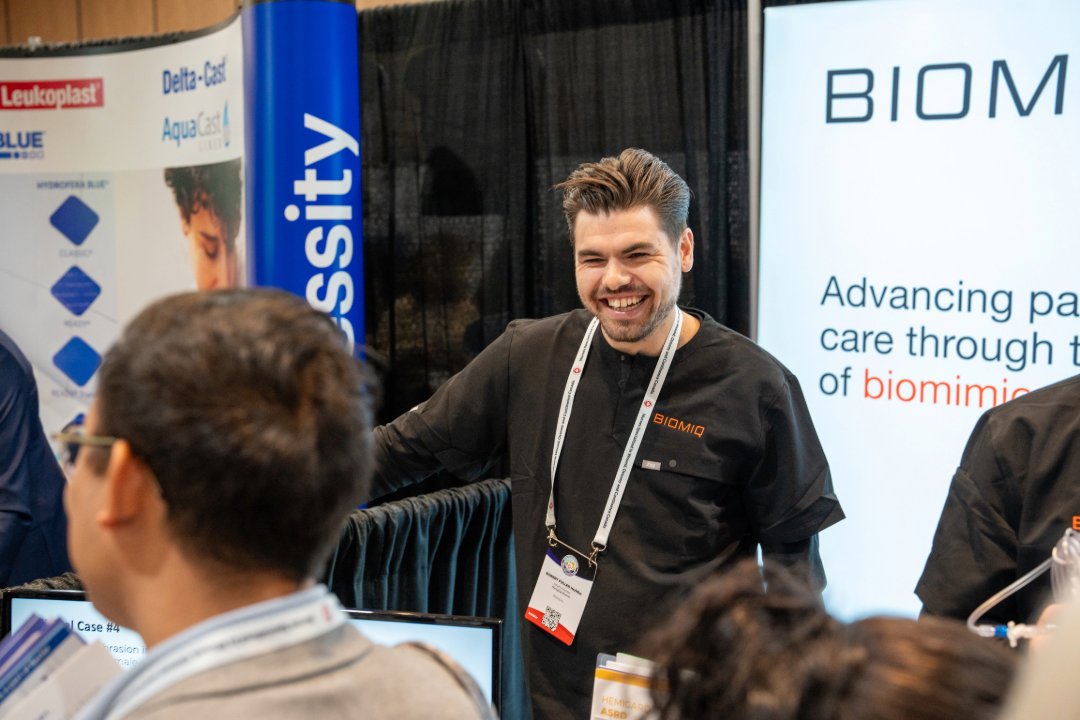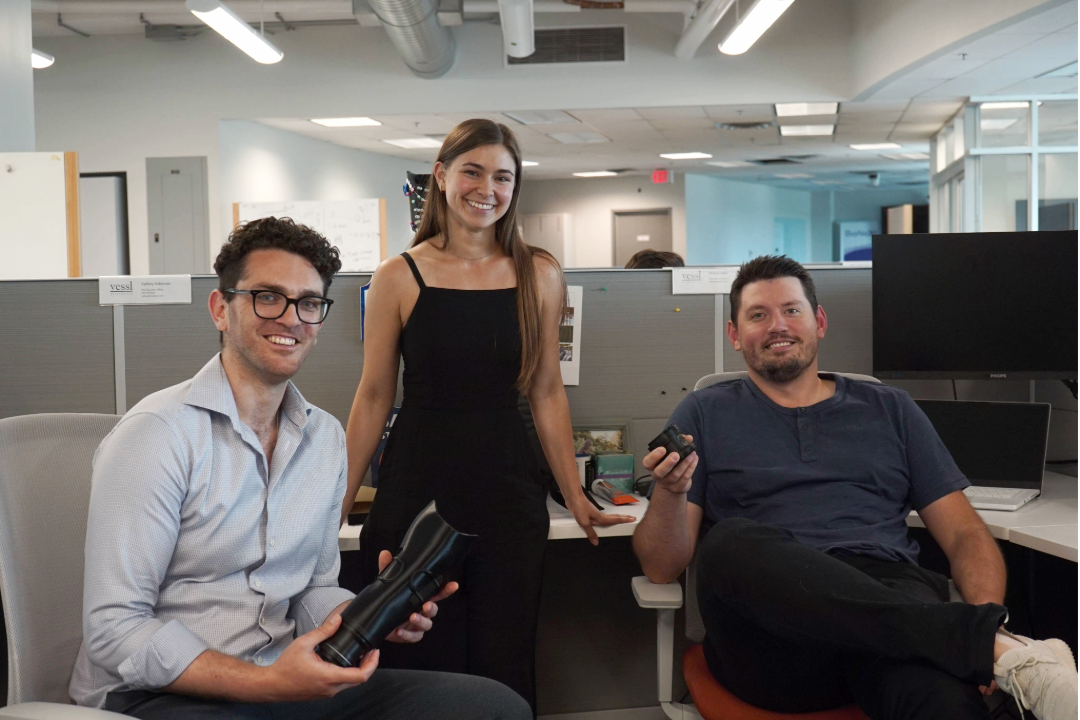
MIX Profile: Sydney Robinson, Co-founder and CEO of Vessl Prosthetics
2025 has been a year of milestones for Vessl Prosthetics. The London, Ontario-based medtech startup closed an over-subscribed round in January, received funding from Ontario’s Life Sciences Innovation Fund in June, and has grown its team from three to seven full-time staff.
Putting patients first with user-centred design
Founded in 2022, Vessl Prosthetics has developed Kinn, an adaptive volume management system for people with leg amputations. Each year, more than 180,000 people in the U.S. and over 3,000 in Canada have a leg amputated. For amputees who are fitted with a prosthetic limb, the socket solutions used today can cause discomfort, irritation, and pain for the patient as their residual limb changes size throughout the day.
Vessl Prosthetics co-founders Sydney Robinson and Oleksiy Zaika first learned about the problems faced by amputees while participating in the Western Medical Innovation Fellowship at Western University. The program brings engineers, doctors, and scientists together to explore potential solutions to medical challenges.
Robinson and Zaika were new to the world of prosthetics and took a user-centred design approach to help them truly understand not only the challenges, but also why current and past solutions failed. The co-founders used their time in the fellowship to speak with amputees and prosthetists, learning what a day in the life is like, what has come and gone in the industry, and why some new solutions aren’t being adopted.
“As engineers, user-centred design forces us to get past our egos. Stop thinking about the cool thing you want to build, and think about what someone’s actually going to use,” Robinson says.
Engineering a better fit
Kinn is mechanically simple yet highly effective as an adaptive socket system. Traditional prosthetic sockets often fail because they can’t keep up with the natural fluctuations in limb size that happen throughout the day. Kinn addresses this with a kinetic tensioning mechanism that automatically adjusts to maintain a consistent fit.
The system constricts lightweight panels around the residual limb until a set pressure threshold is reached, and then continues to adapt as volume changes occur. Unlike other solutions that rely on actuators, sensors, or batteries, Kinn is entirely self-sufficient. It uses stored kinetic energy to maintain pressure without requiring charging or maintenance.
Patients can also fine-tune their experience with a manual dial or release the pressure instantly, offering both safety and control. By focusing on simplicity, durability, and user comfort, Vessl has created a system that integrates seamlessly into a patient’s daily life without adding complexity.
Connecting with investors through storytelling
Over the last three years, Robinson and Zaika have worked to refine the Kinn system and how they tell the Vessl story. Whether it’s speaking with clinicians, prosthetists, and patients or pitching to investors, Robinson says the Vessl story continues to resonate and drive interest.
“You would be surprised how many people know someone with a leg amputation,” she says. “I’ve had a lot of conversations where people would be nodding rather aggressively, and when you ask, they share a story about a family member with this exact problem.”
For people who hadn’t fully understood how debilitating a patient can be when their prosthetic doesn’t fit properly, Robinson uses everyday shoes as an analogy.
“Everyone has worn a shoe that doesn’t fit well, so they can relate to issues like blisters,” Robinson says. “Then we ask them to imagine how debilitating it would be if it were their leg.”
Mastering how to tell their story has played a significant role in Vessl’s fundraising efforts.
“We have some people who have zero relation to any amputee who are interested in medtech. We have a couple of investors with deep finance backgrounds. Then we have an investor who is a quadruple amputee. Our investors range from people who are very close to the problem or experiencing the problem to people who had zero insight before meeting,” she says.
Prepping for launch with MIX
Vessl is working towards a spring 2026 launch for Kinn in the U.S. and Canada. As a Class I medical device, Kinn is regulated in a similar way to bandages and manual wheelchairs. While it’s a simpler process compared to devices used in surgeries, there are still regulatory milestones that need to be met.
Having a community of peers who are dealing with similar challenges is critical to bringing products like Kinn to market. In September 2024, Robinson and Vessl joined MIX as they continued to refine not just Kinn but the sales and marketing engine needed for their launch.
“I’ve known Armen from Intellijoint, Rachel from Hyivy, and Mike from Vena for years. When you go to the same conferences, you get to make so many great connections. But with MIX, we were able to formalize those relationships,” Robinson says.
She adds that one of the most important benefits of being part of MIX is the funding for knowledge translation.
“When you have a young team like ours, it’s nice to have more experienced folks that can come in and share what they’ve learned. The Knowledge Translation funding lets us access consulting, training, and upskilling,” she says.
While Robinson is based in London, Vessl’s team regularly works out of the MIX space. She says the relationships they’ve built there have been invaluable.
“The space is obviously lovely, but really it’s the network that has the biggest impact. There are meetups for sales, manufacturing, and other areas. We’re able to join these meetings and learn from people who are further along than us,” Robinson says. “You can bounce ideas off each other, and that’s been beyond helpful to learn from people who are already shipping.”
Lessons for fellow founders
Robinson says that founders can sometimes miss out on milestones or accomplishments when they’re deeply immersed in building the product, sales pipeline, and regulatory work.
“I would say, just ride the wave,” she says. “Everything that you’re feeling is totally normal. If you’re feeling tired or stressed or overwhelmed, remember, you’re a human being doing something very stressful and very challenging. Surround yourself with people who you can lean on, like the MIX community. Have people in your corner that can relate to what you’re doing.”
For Robinson, being surrounded by peers at MIX has reinforced the lesson that building a company isn’t something founders should do alone.
